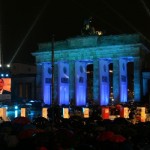True German unity proves elusive
BERLIN — Most Berliners adore their city and are proud that this former symbol of East-West division has become a modern and united capital, as well as one of the world’s most visited places. But 20 years after the wall dividing Berlin fell, the country is still not nearly as unified as the capital, many Berliners and other Germans say.
“We all underestimated the challenges,” said Friedrich Merz, a former member of parliament from Chancellor Angela Merkel’s ruling Christian Democratic Union and now chairman of Atlantic Bridge, a nonprofit organization. “It takes much longer to unify a country.”
Political analysts, economists and ordinary Germans point to the rapidity of communism’s fall, the legacy of state ownership and mistakes made at different stages of the reunification process as reasons why parts of eastern Germany remain underdeveloped and are still losing people to the West…

